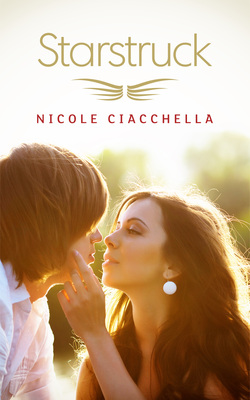In general, I think women are often socialized to view maintaining relationships as their responsibility. Popular culture is awash with "bad boy" types who need only the love of a good woman to repair all their flaws. Given this, is it that surprising that women stay in bad relationships because they think they're supposed to be able to fix them?
Relationship violence isn't perpetrated only by men upon women, though, and that's an important point. Men are the victims of relationship violence too, as are members of the LGBTQ community. Abusers come from every race, every economic bracket, every sort of upbringing. To pretend otherwise is to minimize the seriousness of the problem.
Statistically speaking, though, women are the most common victims of relationship violence. One in four women will experience relationship violence in their lifetime, and 85% of all victims are women. (source)
For people who've never been victims and who are struggling to understand this problem, I'd suggest a simple exercise. Think back to a relationship that went wrong, a relationship that meant the world to you, the ending of which broke your heart. Now ask yourself what you would have done to preserve that relationship. Leaving someone you love is one of the hardest things a person can do, even if it is for your own protection.
Being the victim of abuse is frightening, isolating, and embarrassing. Victims often feel that the abuse is partially their fault, and this isn't a coincidence. Part of the cycle of abuse involves the abuser convincing the victim that s/he provoked it. Often, people in a violent relationship don't even realize that it's a violent relationship. Sometimes something happens that makes it crystal clear to them that they need to get out. You can look at the hashtags I linked above to better understand what I mean by this. Sometimes they never figure it out, and it costs them their lives, their peace of mind, their dignity.
The thought of doing something that could be viewed as opportunistic makes me feel a strong sense of revulsion. I don't want to sound like I'm taking advantage of a situation to try to sell some copies of my book. That's not my purpose at all. What I do want to do is help clarify that abuse comes in more than one form and that the toll is wrecks on the victim's psyche is severe and long-lasting, which is what drove me to write a book about it.
I wrote Starstruck not because I wanted to write a straight-up romance, but because I wanted to portray a victim's struggle to overcome her abuse and to find a healthy romantic relationship. More specifically, I wanted to write about the struggles of a victim of psychological violence rather than physical violence. People know what physical abuse looks like, but they don't always know what psychological abuse looks like. Both forms of violence are extremely serious, and both forms have devastating effects on their victims, some that lead to lifelong physical and/or psychological problems.
My biggest goal with the book was to help people understand what it feels like to be in that situation, and how complex and difficult it is. I wanted people to understand that walking away isn't as easy as it sounds. Many things complicate a person's ability to leave a violent relationship, not least of which are things like financial dependence or having had a child with their abuser. Then there's the personal humiliation victims may feel, the overwhelming sense of failure, and the mourning for the relationship the victim thought s/he was supposed to have with the abuser.
For further information, I'd recommend listening to the conversation on the subject from NPR's On Point. Beverly Gooden, the woman who started the Twitter hashtag, is one of the contributors, and she has a lot of valuable, insightful things to say. The podcast isn't available yet, but it should be up on the page soon.
Most importantly, if you are a victim of abuse, you don't deserve it. I urge you to reach out to someone, whether it's a family member, a friend, or a hotline. No one deserves abuse. Everyone deserves a safe, loving, healthy relationship.
If you live in the U.S. and are a victim of abuse who needs help, or if you want to help someone you fear is being abused, here are a few resources you can reach out to:
- The National Domestic Violence Hotline 1-800-799-7233
- The National Sexual Assault Hotline 1-800-656-4673
- The National Teen Dating Abuse Hotline 1-866-331-9474

 RSS Feed
RSS Feed